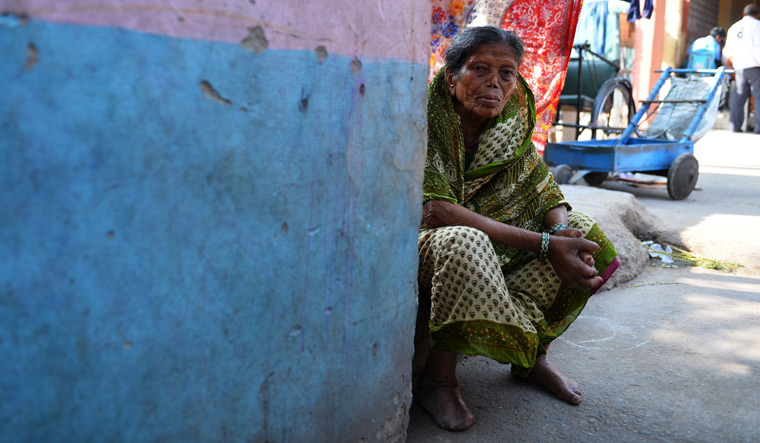In 2005, India officially declared to have 'eliminated' leprosy. The country, however, is far from achieving a leprosy-free status. With leprosy re-emerging in India, an alarming 1,35, 485 new cases of the disease were reported in 2017.
The World Health Organisation estimates India is home to 60 per cent of the global burden of leprosy. Children account for 8.7 per cent of the cases, as shown by a recent report by the National Leprosy Elimination Programme. Bihar, Dadar and Nagar Haveli, Delhi, West Bengal, Lakshadweep and Chhattisgarh have recorded high prevalence rates. The numbers, however, do not stop ministers and government officials from making vacuous statements, creating the impression that we will win the war against leprosy soon.
One of the primary reasons that result in under-reporting of leprosy cases in the country is a lesser number of voluntary reporting in the community, says Dr Swati Rajagopal, consultant, infectious diseases, Aster CMI Hospital, Bengaluru. ''This is mainly because of the dearth of awareness and the persistent fear of stigma and discrimination against leprosy,'' she says. The SPARSH Leprosy Awareness Campaign (SLAC), launched last year, aims at promoting awareness and resolving the issues of stigma and discrimination.
The prevalence of leprosy has increased significantly in places like Kerala due to migration of workers from Uttar Pradesh and Bihar, observes Dr Manoj Parekh, consultant dermatologist and cosmetic surgeon, Vikram Hospital Bengaluru. “The disease is endemic in certain geographic locations in India mainly due to a reservoir of infection-typically undetected leprosy patients,” he says.
Leprosy is known as a 'disease of poverty'. It affects the skin, respiratory tract and nerves, thereby causing deformities, says Dr Shirley Andrews G., consultant family physician, Westminster Healthcare, Chennai. ''Early symptoms of leprosy hardly get detected, thereby leading to late initiation of diagnosis and treatment,'' says Andrews. Leprosy is endemic in developing countries like India and Africa. The disease, caused by the bacterium mycobacterium leprae, spreads by droplet transmission and overcrowding is one of the major reasons that contribute to the high prevalence of the disease in India especially among the lower socio-economic groups. The infective conditions are less common in the developed countries, says Dr Sujit Shanshanwal, consultant dermatologist, Apollo Clinic, Mumbai. High standards of hygiene and better access to healthcare also help prevent the spread of leprosy.
“In countries like India, people do not readily come forward in the early stages to take treatment for fear of isolation and neglect. Also the cost of treatment is quite high and through medications are available free of cost in government hospitals, people do not get registered due to the stigma attached to leprosy,” says Dr Anuradha Rao, senior consultant and head of department, dermatology and venereology, Mazumdar Shaw Medical Centre, Narayana Health City, Bengaluru.
Leprosy is often believed to be 'divine punishment for past sins'. In rural areas, people diagnosed with leprosy often spend the rest of their lives seeking god's forgiveness for their sins. Unable to deal with the stigma and resultant mental health problems, some even move out of homes to leprosy cluster housing. Staying away from family and lack of adequate care only aggravate their symptoms. Left untreated, the disease can cause permanent damage to nerves, eyes, skin and limbs.
Experts say that BCG vaccination could help combat the disease in a big way. Offering BCG vaccination to all infants in endemic areas of leprosy would be ideal, says Rao. ''Though the amount of protection BCG vaccine offers is controversial, studies show that one dose offers more than 50 per cent protection to the disease. Additional vaccination of leprosy patients with BCG vaccine would offer more protection,'' she adds.
Although patients may get carried away or misguided to opt for alternative forms of treatment for leprosy, one must know that no alternative medicine can cure them of the condition, says Andrews. “These therapies can only provide temporary relief from certain symptoms. Only multi-drug therapy that includes antibiotics to fight the leprosy-causing bacteria can provide complete and permanent cure by killing the bacteria,'' she says.
The available allopathic treatment for leprosy have excellent cure rates, says Rajagopal. ''They can enable patients to prevent disabilities if the disease is detected early,'' she says.



